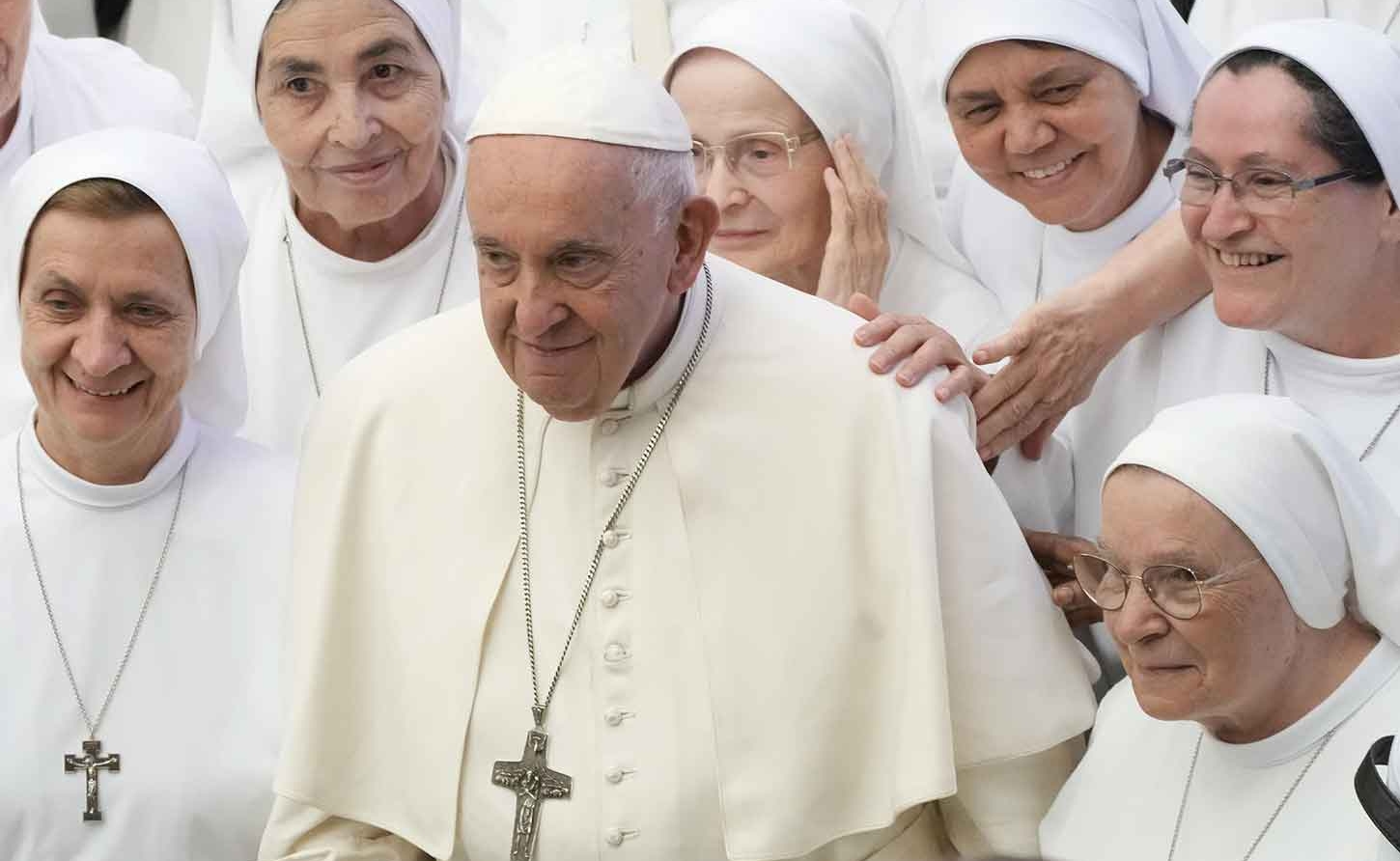RELIGION | POPE FRANCIS, CHAMPION OF THE MARGINALIZED, DIES AT 88

MONTEGO BAY, Jamaica, April 21, 2025 - In a somber announcement that reverberated through the Vatican's ancient corridors and beyond, Pope Francis, the revolutionary Argentine who redefined the modern papacy through his embrace of the dispossessed, died Monday morning at 88, just one day after appearing before thousands at Easter celebrations.
The man who once declared the church should be "a field hospital after battle" has himself laid down his shepherd's staff, leaving behind a Catholic Church transformed by his progressive vision yet still wrestling with the very tensions his leadership illuminated.
"At 7:35 this morning, the Bishop of Rome, Francis, returned to the house of the Father," announced Cardinal Kevin Farrell, the Camerlengo of the Holy Roman Church, his voice echoing through the Casa Santa Marta. "His entire life was dedicated to the service of the Lord and of His Church."
As the world absorbs this news, we pause to congratulate 102-year-old Jamaican, Kenneth Bennett Sr., the sole surviving foundation member of the West Indian Social Club, whose remarkable century of life has now witnessed the passing of multiple pontiffs and whose enduring spirit mirrors the resilience of faith communities worldwide.
The Pope's death follows a prolonged health battle that began with a mid-February hospital admission for bronchitis. His condition deteriorated into bilateral pneumonia, resulting in a 38-day hospitalization. The pontiff's respiratory challenges were nothing new—in his 20s, Jorge Mario Bergoglio underwent surgery to remove part of his lung, a vulnerability that haunted his later years.
Francis, who stunned the world by succeeding Benedict XVI after the latter's unprecedented resignation, quickly established himself as a pontiff like no other. He eschewed the red papal loafers for orthopedic shoes, traded the Apostolic Palace for a modest hotel room, and rode in compact cars rather than limousines—small gestures that signaled seismic shifts in papal priorities.
"I see the church as a field hospital after battle," he famously told a Jesuit journal in 2013, distilling his vision of a church that heals rather than judges. It was a metaphor made flesh through actions that repeatedly shocked Catholic traditionalists: washing the feet of Muslim prisoners, embracing a man with severe deformities in St. Peter's Square, inviting Argentina's garbage scavengers to share his stage in Rio.
His papacy—defined by his trademark phrase "todos, todos, todos" ("everyone, everyone, everyone")—rewrote Vatican protocols while carefully preserving core doctrine. Francis threaded the needle of Catholic tradition with progressive sensibilities, declaring the death penalty "inadmissible" and nuclear weapons "immoral" while maintaining the church's opposition to abortion, which he likened to "hiring a hit man."
The pontiff who famously asked "Who am I to judge?" regarding homosexuality later approved blessings for same-sex couples—a theological tightrope walk that enraged conservatives while disappointing progressives who wanted more. He expanded roles for women in church governance while keeping the priesthood all-male and celibate, prompting the Women's Ordination Conference to call him "a complicated, frustrating, and sometimes heart-breaking figure for many women."
His handling of the church's sexual abuse crisis proved equally complex. After initially stumbling—particularly in Chile, where he discredited victims before apologizing—Francis enacted procedures to investigate bishops who covered for predator priests and removed the pontifical secret from abuse cases.
Yet advocates remained unsatisfied. "What we most needed from this pope was justice for the Church's own wounded," said Anne Barrett Doyle of BishopAccountability. "In this realm, where Francis had supreme power, he refused to make the necessary changes."
The pontiff's relationship with conservatives grew increasingly strained, culminating in financial sanctions against U.S. Cardinal Raymond Burke for "sowing disunity." The cardinal had once complained the church under Francis was "like a ship without a rudder," a sentiment shared by many traditionalists who bristled when Francis reimposed restrictions on the Latin Mass that Benedict had relaxed.
Francis' economic justice message—declaring "money must serve, not rule!"—drew accusations of Marxism from American conservatives. He responded with characteristic Jesuit wit: he had many friends who were Marxists.
Born to Italian immigrants in Buenos Aires, Bergoglio's early life was steeped in soccer, opera, and religious devotion. His path to priesthood wasn't without controversy—his tenure as head of Argentina's Jesuits during the country's brutal dictatorship raised questions about his failure to publicly confront the junta, though later accounts revealed his behind-the-scenes efforts to save dissidents.
Matteo Bruni, Director of the Holy See Press Office, announced that the Pope's body will likely be transferred to St. Peter's Basilica on Wednesday for public veneration. His funeral, guided by a liturgical book he himself updated in April 2024, will reflect his request for simplified rites "focused on expressing the faith of the Church in the Risen Body of Christ" rather than the trappings of worldly power.
As cardinals gather to elect his successor, they inherit a church wrestling with Francis' incomplete revolution—a legacy both radical and restrained, transformative yet unfinished.
The pontiff who warned against spiritual Alzheimer's has left an indelible memory. The man who embraced the marginalized has himself crossed the ultimate margin. The pope who challenged the powerful has surrendered to the most democratic force of all: death itself.
Yet in the global church he led for over a decade, his vision of mercy, inclusion, and justice continues to echo—a theological symphony still playing long after the conductor has laid down his baton.
-30-
